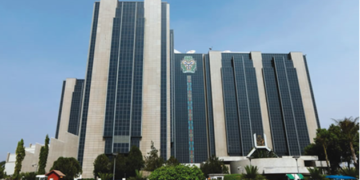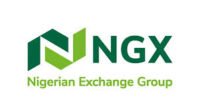Equity finance is one of the methods a business can raise long-term funds to meet its liquidity needs by selling shares of the company to the public, institutional investors, or financial institutions in exchange for cash.
The people who buy shares are referred to as shareholders of the company because they have received ownership interest in the company.
Equity financing is different from debt financing, where funds are borrowed by the firm to meet its liquidity requirement.
Businesses raising funds through equity usually have a concern about the owners being able to retain the majority stake after listing or losing control of the business. This issue is however resolved by the minimum free float requirement of 10% to 20% depending on the listing Segment/Board of the Nigerian Stock Exchange (NSE).
Listing a company does not only serve as an avenue for raising capital, it is also an opportunity for the core investors in a business or pioneers to divest from the business as well as ensuring business continuity beyond its founders.
NSE Listing Process
According to the Nigerian Stock Exchange (NSE), listing a company on the Exchange is done in nine stages as follows:
- Consultation:
After preliminary discussions within your company about going public, you are to approach a Designated Adviser (DA). Alternatively, a DA may approach you with a proposal for listing of your company.
It is a compulsory requirement for all companies listed on the Growth Board to have an NSE accredited Designated Adviser (DA).
Read: NSE Growth Board: Benefits for SMEs and how to list on the Board
Roles of a Designated Advisor
The functions of a DA, amongst other things, will cover the following:
- Provide professional advice to companies seeking listing on their responsibilities during the application process
- Act as a professional and impartial guide to the applicant company in respect of capital market rules and operations
- Provide advice to the company on an on-going basis to ensure that the company satisfies the Growth Board Board requirements for initial and continued membership;
- Confirm that the company has addressed and met the disclosure requirements set forth in the Growth Board Rules;
- Assist the company’s management and board to discern what information is material and therefore needs to be disclosed to investors.
- Preparation
The Board and Shareholders mandate the company to proceed with the listing. After initial discussions with the proposed DA, the Board and Owners of your company will get together to pass the necessary resolutions. A decision will also be made on the preferred route to listing and a mandate letter issued to the DA.
- Documentation/Packaging
Functions are allocated, relevant information for the issue are documented. After initial discussions with the proposed DA, the Board and Owners of your company will get together to pass the necessary resolutions. A decision will also be made on the preferred route to listing and a mandate letter issued to the DA.
- SEC Registration/NSE Approval
Request for approvals from NSE, SEC and the industry regulator (where applicable). Your DA has the responsibility of submitting your application to The NSE with a covering letter, accompanied by the NSE application/listing fees.
- Completion Board Meeting
You will convene a Completion Board Meeting with all parties to the issue/listing in attendance. At this meeting, your offer documents/prospectus will be signed.
- Completion Board Meeting
Your Issuing House distributes application forms to all receiving agents. The required number (50 copies of abridged and 25 copies of hardcover) is submitted to The Exchange for distribution to NSE branches and Council members. The application list opens on the selected date and closes after 4 to 6 weeks.
- Range of Analysis/Allotment
The Registrar prepares a range of analysis on how the securities should be allotted. After the range is agreed upon, allotment is done and sent to SEC for approval. Successful shareholders receive shares, issuers receives payments & receiving agents receive commissions.
A copy of the allotment pattern is also sent to the NSE for information. Monies in respect of unsuccessful/rejected applications are returned.
- General Undertaking/Declaration of Compliance
- At this stage, your company prepares and delivers to the Exchange, on its letterhead paper:
- General Undertaking (As set out in Appendix III of The NSE Green Book) where it undertakes to abide by The Exchange’s post listing requirement).
- A Declaration of Compliance
Your Company Secretary must sign the above statements.
9. Listing
Company shares are admitted to the Daily Official List for trading.
Prospectus contents guide
As part of the documents to be presented by your company, you will be required to prepare a Prospectus. This is necessary to give information to the SEC, NSE and intended investors and should contain the following information at the minimum:
- Summary of Offer
- Purpose of Offer
- Corporate Directory
- History & Business of Company
- Risks & Mitigating Factors
- Details of Directors & Management
- Historical Financials
- Financial Forecast
- Statutory & General Information
- Procedure for Application & Allotment
- Application Form
- Application Instructions
- Contact Information
Post Listing requirements
A listing in itself is not the final stage. In fact, it is just the beginning of a new era for your company. Your continuing obligations, as a publicly quoted company, come with increased responsibilities to the investing public. There are also expectations by The Exchange to ensure your company maintains the discipline to retain its status as a publicly quoted company.
What is expected of your company after listing?
At the pre-listing briefing, the post-listing obligations would have been explained to you, and an irrevocable undertaking to fulfil these obligations signed. The primary obligations are listed below:
- Submission of semi-annual and annual financial statements
- Retainership of the services of a DA, throughout the listing period on Growth Board
The Nigerian Stock Exchange’s timeline Initial Public Offering (IPO) approval is seventeen (17) working days.
The Nigerian Stock Exchange (NSE) lists companies on 3 Boards: Premium Board, Main Board and Growth Board, which are governed by the NSE listing rules. The board your company lists on depends on its size, scope and growth stage.
For more details visit the NSE website – Listing your company.
The NSE Rule Book sets out the requirements for listing on The Nigerian Stock Exchange. This article provided a summary of the listing process of NSE Growth Board. For details of the listing requirements, please refer to the NSE Green Book.
Listing on the NSE is not free of cost, see NSE listing fees for more details.
By: Ifunanya Ikueze






















































